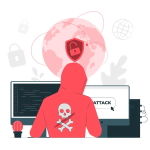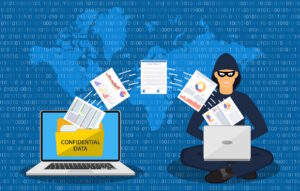People are more vulnerable to phishing attacks because of the significant rise in technology addiction and work stress. It’s common for people to check their smartphones last thing at night and the first thing in the morning; during the day, they almost always have them close at hand. Technology addiction is an issue that is widely accepted and only getting worse.
The famous Mayo Clinic tackled this issue on its website, describing internet and video game addictions as behavioural addictions that are just as complicated and difficult to cure as drug usage.
According to the Mayo Clinic in a statement:
The reward centre in the brain releases dopamine in response to a pleasurable experience or hyperarousal. The more times people experience the behaviour, the more dopamine is released and the more driven they are to return to the behaviour.
These addictions, especially those to technology, are attractive for a reason that has nothing to do with self-control. It is challenging to avoid the dopamine connected with tech addiction because of the wide use of digital devices at home and at work.
Our dependence on technology and the addiction it fosters
In the twenty-first century, it is difficult, though not impossible, to escape the digital world, which is all around us. Technology addiction is on the rise in the modern day, in part, due to the increase in social media users globally.
Since the pandemic and the rise of remote employment, internet-connected gadgets have become a common part of our lives, and tech addiction has become more serious. Compared to before the pandemic, according to Nielsen statistics, individuals use technology for an additional three hours each day.
Why should those in charge of data security be worried about technology addiction? As a result of the significant stress and burnout that may result from the “always on” mindset of today’s digital sapien, employees are undoubtedly far more vulnerable as a result to phishing attacks, ransomware, and social engineering attacks.
As with alcohol or narcotics, technology usage may become addictive and negatively affect your life. It demands an attention that conflicts with other actions and behaviours. Not merely from a practical perspective, but also emotionally, technology addiction has an over-dependence.
Data security and phishing attacks
The American Psychological Association reports that the years 2020 and 2021 saw a rise in burnout rates. Based on responses from 1500 US employees, its 2021 Work and Well-being survey reveals that 79% of respondents had dealt with work-related stress in the month before completing the survey.
According to APA report:
Nearly three in five employees reported negative impacts of work-related stress, including lack of interest, motivation, or energy and lack of effort at work.
Tiredness and lack of interest cause people to be careless, distracted, and make mistakes as well as fall victim too easily to cybercriminals.
Attack vectors such as phishing are also becoming more common. Hackers are aware that people working remotely or at home are more exposed. For example, Phishing Tackle discovered that the pandemic saw a 521% increase in phishing attacks.
Hackers and other bad actors are quite familiar with social relations and human weaknesses. They are aware that people have vulnerabilities and psychological flaws that may be leveraged by social engineering techniques, such as exploiting ignorance or lack of interest, and use of aggressive or threatening behaviour.
Social engineering is a technique used by cybercriminals to get private or confidential information by deceiving people on the job. Burnout and social engineering schemes are more likely to target those who are addicted to technology. What can businesses do about this then?
Combatting tech addiction by assisting employees
Recognising a problem is the first step toward recovery from any addiction. Educate staff members about the severity and symptoms of technology addiction. Ask them to assess their own activities to see if they are vulnerable to the dopamine-enhancing effects of their customer experiences.
Teams in charge of technology and security should work with those in charge of other functions to raise organisational awareness of the problem of stress and work overload.
A regular feature of the workday can be “digital free time”, also known as “Detachment”. Encourage workers to avoid sending out too many emails about work on the weekends or after hours. Teach your staff to pause and consider if sending that email right now is necessary. and “What experiences in life may you be risking losing if you continue to be so involved in your digital habits?”
The best protection is human education, however due to the complexity of the cyberattacks and social engineering components, it is challenging to stop the threat. Continuous awareness training is important to allow workers manage their workload and stress. Phishing Tackle offers the most cost-effective training, including that on detachment and work stress. Start your two-week free trial of Phishing Tackle security awareness training now to help your employees.








